Anuoluwa Ayeni
University of California, San Francisco
United States
Abstract Title: A Pregnancy Management Checklist for Patients with Multiple Sclerosis: Human-Centered Development
Biography:
Anuoluwa Ayeni is a fourth-year medical student at University of California, San Francisco. She is passionate about patient education and increasing health literacy, with the goal of empowering patients to choose what is best for them.
Research Interest:
Background. During the pregnancy and postpartum periods, the convergence of neurological disease (multiple sclerosis, MS), socioeconomic factors, and minoritized race/ethnicity (Black, Hispanic) can result in reduced pregnancy screening, increased risk of emergency deliveries, shorter breastfeeding duration, and worse peripartum mental health.
Objective. To identify barriers and facilitators to accessible, quality care for minoritized pregnant women with MS and develop a tool for managing both MS and pregnancy.
Methods. Human-centered design was used to develop and refine the pregnancy management checklist with input from patients and experts in MS care, maternal fetal medicine, and pregnancy care for minoritized populations. This process has four stages: discover, define, develop, and deliver. The discover stage included one-on-one interviews with seven patients and six stakeholder experts, who identified a checklist as a likely intervention. In the define and develop stages, the checklist was refined based on interview findings. In the deliver stage, five patients completed an electronic survey to assess satisfaction, efficacy, and usability of the checklist.
Results. Factors that facilitate MS and pregnancy-related care access and quality were social and clinical support, neurology and obstetric care collaboration, and physician knowledge of updated MS treatment guidelines. Key barriers were socioeconomic factors and a lack of knowledge of MS course. The checklist was designed to target these gaps, and survey results indicated a strong consensus about the checklist’s efficacy and ease-of-use.
Conclusion. Having ensured that this checklist was perceived as usable and efficacious, next steps will focus on dissemination of the checklist to patients and clinicians
